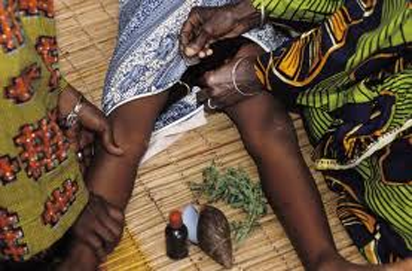Ipas seeks determined action to end FGM in Nigeria by 2030

By Sola Ogundipe
Ipas Nigeria Health Foundation has called for determined action in the form of coordinated and systematic work involving men and boys with a focus on human rights to eliminate the menace of Female Genital Mutilation, FGM, by the 2030 target.
The Foundation said a focus on gender equality, sexual education and attention to the needs of women and girls who suffer from its devastating consequences were all essential factors towards attainment of this goal.
Giving the call to action to end FGM in Nigeria in commemoration of the 2023 International Day of Zero Tolerance for Female Genital Mutilation, themed; “Partnership with Men and Boys to Transform Social and Gender Norms to End FGM”, the Country Director of Ipas Nigeria Health Foundation, Mr Lucky Palmer, reiterated the need to accelerate efforts towards ensuring a Nigeria free of FGM.
“The human rights of women and girls – including the right to live free from violence and to have the opportunity to realise their full potential – must be protected and upheld. Ipas Nigeria recommits to ending this grave human rights abuse. We reiterate the need to accelerate efforts – especially with families and communities – to achieve a Nigeria safe for girls and women and finally free of FGM.
“We must take determined action to bring about change and eradicate this practice if we are to meet the Sustainable Development Goals (target 5.3) deadline of Zero FGM by 2030. We can all do our part to stand against this harmful practice,” Palmer stated.
The statement noted that FGM is on the rise among Nigerian girls aged 0-14 even as rates have risen from 16.9 per cent in 2013 to 19.2 per cent in 2018, a ‘worrying trend’, according to UNICEF.
“With an estimated 19.9 million survivors, Nigeria accounts for the third-highest number of women and girls who have undergone FGM worldwide. About 68 million girls worldwide were estimated to be at risk of FGM between 2015 and 2030.
To eliminate FGM, coordinated and systematic work is needed to engage men and boys with a focus on human rights, gender equality, sexual education and attention to the needs of women and girls who suffer from its devastating consequences.
Further, Palmer said, “For lpas Nigeria, we work to engage with male peer influencers, community leaders, religious leaders, tribal heads and policymakers mostly dominated by men to speak against all forms of gender-based violence including FGM. It is a violation of human rights and women and girls who survive are usually left to deal with serious physical, social and mental consequences for the rest of their lives.
“The Violence Against Persons (Prohibition) Act (VAPP Act) 2015, is the benchmark legislation for prosecuting perpetrators and providing remedies for victims of FGM. We commend 34 State Governments who have domesticated the VAPP Act and urge relevant stakeholders to expedite action toward investigation and prosecution of such cases to ensure justice is served in good time.”
